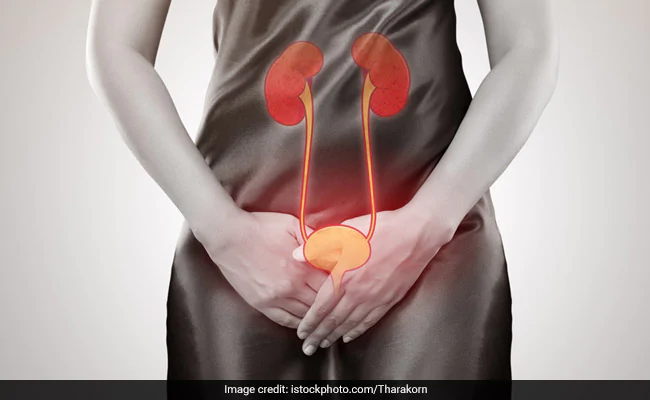- Our Doctors
- Our Specialities
Centres of Excellence
-
 Centre for Blood Diseases, BMT & Cancer Immunotherapy
Centre for Blood Diseases, BMT & Cancer Immunotherapy -
 Centre for Bone, Joint & Spine
Centre for Bone, Joint & Spine -
 Centre for Critical Care Medicine and ECMO Services
Centre for Critical Care Medicine and ECMO Services -
 Centre for Gastrosciences
Centre for Gastrosciences -
 Centre for Heart & Vascular Care
Centre for Heart & Vascular Care -
 Centre for Nephro-Urosciences
Centre for Nephro-Urosciences -
 Centre for Neurosciences
Centre for Neurosciences -
 Centre for Obstetrics and Gynaecology
Centre for Obstetrics and Gynaecology -
 Centre for Organ Transplantation
Centre for Organ Transplantation
Super Speciality
-
 Advanced Diagnostic and Interventional Radiology
Advanced Diagnostic and Interventional Radiology -
 Anesthesiology & Pain Management
Anesthesiology & Pain Management -
 Clinical Nutrition and Dietetics
Clinical Nutrition and Dietetics -
 Dental and Maxillofacial Surgery
Dental and Maxillofacial Surgery -
 Dermatology
Dermatology -
 Emergency and Trauma
Emergency and Trauma -
 Endocrinology and Metabolic Disease
Endocrinology and Metabolic Disease -
 ENT and Head & Neck Surgery
ENT and Head & Neck Surgery -
 Family Medicine
Family Medicine -
 General and Laparoscopic Surgery
General and Laparoscopic Surgery -
 General Medicine
General Medicine -
 Laboratory Medicine
Laboratory Medicine
-
- Key Procedures
- Our Hospitals
- International Patient
- Contact us
-
Quick Links
Blogs

What Are Contraceptive Methods Available To You In India, And All You Should Know About Them
Originally Written for Womens Web
What are contraceptive methods available in India? This is a question all of us need to ask. Here is some handy information about what you can choose from, and make an informed decision for preventing a pregnancy.
“The best contraception in the world is a good education.” ~ Joycelyn Elders, American pediatrician and public health administrator who served as Surgeon General of the United States from 1993 to 1994
While I agree with the quote, a good education alone will never provide you with all the answers you want or need. Even among educated urban women, there is a low awareness of what contraceptive methods are available, and this is compounded by the fact that traditionally, Indian families do not consider it important to talk about contraception.
It isn’t very easy to go to a gynaecologist for this information either, especially for sexually active single women, or even for married women in a family with a traditional mindset. We hear so many horror stories of how even gynaecologists and other health care workers can be judgemental, rather than giving you the information you need.
Given this background and conditioning, most women find it hard to discuss contraception, even with a partner, when it should, indeed, be one of the most important conversations. Add to this the fact that most women do not have autonomy over their bodies, and no say in their pregnancy or even if they want to have sex or not.
It can be a HUGE help in such a scenario if you can get all this information on what contraception is available, where to look for it, which ones can give you full control, what you can do in case you want to prevent a pregnancy after sex, and where you do not need to be dependent on a partner to cooperate, correct? In short, what is YOUR ideal contraceptive of choice, suitable for your individual needs, which might change over time.
An ideal contraceptive should be effective, safe, acceptable, easy to use, should not be permanent, should be inexpensive, and should not require the cooperation of a partner during the act of sex.
So what are different contraceptives available in India?
Contraception has been the big thing of the 20th century that has truly freed women to follow their dreams. What are contraceptive methods available in India?
In this piece, you will get information on what are different contraceptives available to you in India, and a couple of them which are still undergoing trials and will be available soon.
We will cover barrier contraceptives of which the most commonly known, easily available, and easy to use one is the male condom, which is useful not just as a contraceptive, but also crucial for prevention of sexually transmitted diseases. Other barrier contraceptives discussed will be the female condom, the cervical diaphragm and cap, vaginal sponges, and an upcoming one which is effective for a month.
We will cover hormonal contraceptives - which by definition means they act by affecting the hormone levels in a woman’s body to make it impossible for a pregnancy to occur. Commonly known names are the oral pills, the IUD (more commonly known as a Copper T), vaginal rings, emergency contraceptives (the morning after pill), and hormonal contraceptives that can be either injected, or placed under the skin - giving long term protection.
We will also cover permanent contraception methods, which are important in their own way.
A word of caution before we go on
This article is meant as a guide to what contraception is and the various methods available to the women in India. However each woman is unique in comfort levels as well as medical and personal choices, beliefs and practices. This “cafeteria approach” is to familiarise the reader to the many methods available for taking control of her destiny and body.
*All names in the stories included have been changed for privacy.
Condoms - male and female, diaphragms, and other Barrier Methods
*Arti, a 20-year-old young adult is sexually active. She is not yet in a committed relationship but is open to the idea of marriage and motherhood later in life. “ I know it will take me a while to find someone I love enough to spend the rest of my life with. But I am young and have a healthy sexual life”, she says. Her quest is for a temporary method that also affords her protection from sexually transmitted diseases.
Arti is a sexually active single adult, and the best option for her (and for all sexually active single adults, of any gender), is the barrier method of contraception, of which the most popular is the male condom.
The condom is also crucial for preventing sexually transmitted diseases (STDs), especially HIV (AIDS virus) and the Hepatitis B virus, both of which can be life threatening.
There are many varieties of condoms easily available over the counter everywhere - chemists’ shops, supermarkets, and online stores. There are also condoms available now that are thinner for increased sensitivity that also allow for a more ‘natural’ skin-on-skin touch feel, more break resistant, and easier to use. For increased lubrication as well as for its spermicidal action, you could use a water based gel like KY Jelly, again easily available at most chemists and online.
Despite this, however, the condom has the maximum failure rate among all contraceptives, as it can slip or tear, or the semen can spill over, if not used properly or if it is past its use by date. For this, I would recommend you use it in combination with another contraceptive method whenever possible, depending on your needs.
Female condoms (brand names Femidom/ Reality) are more freely available nowadays, and cost around Rs 75. However, they are not as well known or popular with couples, as they might feel uncomfortable or look strange, and may also cause some noise during sex, which some might find off-putting.
Diaphragms (brand name Caya, costing Rs 6,519) and cervical caps can be reused many times, and give better control to women who might be wary of the male partner not cooperating by using a male condom. However, they have to be inserted along with spermicidal jelly / cream before having sex, and need some degree of getting used to inserting it - you might need to be shown how to, by a gynaecologist or health care worker (somewhat like using a menstrual cup). This description makes it feel a bit tedious, but it offers very good protection from pregnancy if used properly, and puts you in control, while not having any hormonal side effects.
The last one among barrier contraceptive methods available are the sponges. Some women might remember the product called Today; however, sponges did not become very popular, and very few companies now make them.
A new barrier contraceptive with brand name Ovaprene that women can use (and have control over) will come into the market in a couple of years, and is still under trials. This is made of polymers, and you can be worry free for an entire month with this.
Oral Contraceptive Pill - most popular hormonal contraception method
*Prakriti a young bride, is on the threshold of a new career. “I love Prateek “, she says “and am happy being married to him. But kids are a definite no-no at the moment. I want a foolproof method of avoiding pregnancy, so that I can focus on my career.``
Prakriti should use the OC Pill.
* Sajidah, a software engineer has a 2-month-old baby and she is looking to start working from home in a week’s time. “I’m opting for WFH so that I can look after Miriam. But I am worried about preventing a second pregnancy, while ensuring that I can breastfeed Miriam safely.”
*Rani has a different reason to use the pill. She has severe PMS (premenstrual symptoms) and she has been advised to take OC pills
Oral contraceptive tablets or ‘The Pill’ as it was popularly known in the West, is one of the best contraceptive methods available that give women full control as it can be taken in privacy, does not need any special skills or medical intervention to use, and the contraceptive effect is reversible once you stop taking it.
The OC Pill, as it is commonly known, has a combination of the two hormones, oestrogen and progesterone in a dose that prevents the release of the egg. The levels of the hormones are adjusted to follow a woman's actual hormonal levels in a normal menstrual cycle, and is very effective if it is taken according to the directions on the package.
You must begin taking the pill usually on the 2nd day of your bleeding, and continue taking one every day preferably at the same time, in the direction of the arrow on the pill strip. If you miss a pill, you take it immediately when you remember. However, if you miss it more than once, you still have to continue taking them to the end of the cycle as stopping them at this point could cause withdrawal bleeding - your periods coming at an unwanted and inconvenient time, also potentially messing up your menstrual cycle. But, in this case, until you get your regular periods, you should also use another method of contraception like condoms with a spermicidal jelly along with it, to be 100% sure of avoiding pregnancy.
Earlier OC Pills had higher doses of oestrogen, which had a risk of unwanted side effects like increased clotting of blood (which is further increased by smoking) that could lead to complications. The higher dose also increased the risk of some cancers, also seen in some hormone replacement therapies (HRT) given to menopausal women.
Over time, the OC Pill has evolved to lower and safer, but equally effective levels of oestrogen; the present day OC Pill is a much safer and very effective option if taken correctly - and one that keeps the power of deciding when to have a child or not in a woman’s hands completely.
Some specific formulations of the OC Pill (the minipill, brand name Cerazette) are also an excellent contraceptive method for young mothers even if they are breastfeeding, and want to prevent a second pregnancy too early (as seen in the third example above).
There are other uses of the OC Pill beyond use as a contraceptive (as in Rani’s case) - your gynaecologist may give you OC Pills to reduce the bleeding and the pain associated both with periods as well as mid-cycle pain when the ovum is usually released. The decrease in excessive bleeding also means that in these cases, the OC Pill helps prevent the resulting anaemia. She may also prescribe these as treatment for heavy menstrual bleeding, or in PCOS and Endometriosis.
On an average these OCs cost about Rs 100 per strip of 21 (which last you a month). There are a few newer ones which can be taken for 84 days (Seasonale) or even for 365 days (Amethyst). While they can be bought from chemists, some brands like Mala-N, Mala-D, and Saheli are available free from government health care centres, and can reach women in even inaccessible areas through health care workers.
Copper T, and other hormonal contraception methods not taken orally
*Roshni has a busy schedule at work and is often forgetful as far as daily medication is concerned. What are the alternatives available for her?
*Samaira had tried patches but found that they left ungainly red eruptions over the area that she applied them. “Can I find a safe alternative?” asks Samaira.
Copper T and similar ‘intra-uterine inserts’
You must certainly have heard about Copper T, one of the two intra-uterine contraceptive methods (IUD) that are freely available in India. The Govt of India has made it popular through its maternal and child health care drives, and it is free of cost.
The other is called Mirena or Eloira, depending on the brand available for you, and costs around 7-8K. Both need to be inserted into a woman’s uterus by a doctor or health care provider.
Copper T can be left inside for 5 years, and this makes it a great contraceptive method that you can get inserted after a delivery during post childbirth visits to the doctor; it can give you a great deal of power over spacing out pregnancies.
Copper T, however, can cause some unpleasant side effects like excessive bleeding during periods with/without pain. If this happens, you need to report this to your doctor who may prescribe another method, as the heavy bleeding can not only be a pain and inconvenience, but it can also cause anemia.
Patches, sprays and gels - hormonal contraceptives applied on the skin
An ideal method for women like Roshni is a skin patch that can be applied either on the upper body, upper outer arm, buttock, or the abdomen. Never to be applied on breasts.
The patch is to be worn for one week after which you will have to get a fresh one. After 3 weeks, a patch free week is prescribed. The cost of one patch is around Rs 300.
Skin sprays and gels are currently in a trial phase, and yet to be available commercially, but these are easy contraceptives methods you can look forward to in the near future.
Vaginal Rings
Silicone vaginal rings are again, one of the contraceptive methods available that work on hormone levels. It is a safe and convenient birth control method that works really well if you always use it correctly. You wear a small, flexible ring inside your vagina, and it prevents pregnancy 24/7 by releasing hormones into your body.
This is effective for a period of 3 weeks, and you can insert it into the vagina yourself, once you get the hang of it, again, something like the menstrual cup.
The most popular brand is NuvaRing, and costs approximately 800 rupees each. You can re-use it every month for a year’s time - keep it in for 3 weeks, then take it out for 1 week. Put it in again for 3 weeks.
Another brand of vaginal ring not yet available in India is Annovera, which can also be used for a period of 1 year, in a similar fashion. Another is Progering, a progesterone only vaginal ring that is useful during breastfeeding, but again, not yet available in India.
Subcutaneous implants
These are small rods implanted into the inside of your upper arm by a doctor, and they release the contraceptive hormones constantly, for a period of 3 years.
The brand available in India is Implanon - this is a fairly expensive contraceptive, costing between Rs 10k-15k, and you will also need to go to a doctor to get it inserted, as well as removed. The advantage is that they are very effective, and you can be worry free for 3 years.
Injectable hormonal contraceptive
The most easily available one in India is called Depo-Provera, and costs around Rs 1500 per dose, and you need to get it injected once in 3 months.
Depo-Provera, however, is not fail proof - it is about 95% effective, and it may also cause irregular periods in some women.
All of these are also called ‘Long Acting Hormonal Contraceptives’ LAHC - by doctors, and the big advantage is that you need not remember to take a dose every day, and they are effective for a long enough period every time you take a new one. Other than the Copper T, however, none of the others have really caught on in very large proportions of the population.
Emergency Contraception
*“Oh dear!” exclaimed Radha as she woke up with a massive hangover. She remembered that Rohit and she had unprotected sex the previous night in the throes of passion. “What do I do now?” She is in no way prepared for a pregnancy.
This - emergency contraception, or what is better known as the ‘morning after pill’, has been a huge boon to sexually active women who might wake up in the morning, worried after unplanned sex.
Anyone of us can have this experience - after all, some of the fun of sex is in the unpredictability of it, whether it happens in a committed relationship or not. But we may not be ready for a pregnancy! This is a life-saver also in case of a rape, where everything is out of the woman’s hands, but she can at least avoid the unwanted pregnancy.
Enter the morning after pill. This is available over the counter in most places, except for some states like Tamil Nadu. The brand names commonly available are I-Pill and Unwanted-72, and you must take it as soon as is possible, before 72 hours after unprotected sex.
Both I-Pill and Unwanted-72 come in a package of a single pill. Women who may not have access to these more expensive pills can also take 2 pills of Mala-N, the freely available OC Pill at Govt health centres - you must take 1 pill as soon as possible, and the 2nd after 12 hours.
Again, a word of caution - This is only an ‘emergency contraceptive’ - you should use it ONLY as an emergency measure, very very sparingly, and should NEVER be a substitute for regular contraception. Using this too many times can seriously mess up your menstrual cycle, and can also lead to many long term side effects. If you are sexually active regularly, please consider one of the other methods listed here. It is only an Emergency Exit.
Tubectomy, Vasectomy, and other permanent contraceptive methods
Both tubectomy and vasectomy are surgical methods of contraception, permanent for all practical reasons. These can, if needed, be reversed by a second surgery, but should be considered only if you have completed your family, or intend being child-free.
I would recommend vasectomy as the procedure of choice for couples, as it is less invasive, and a simple surgery that can be done on an OPD basis - no admission is required. Men, please start taking responsibility for contraception - women’s bodies are doing most of the work, and undergo a lot of trauma.
That said, tubectomy - in which the fallopian tubes in a woman are cut and the ends tied, is still the more frequently done procedure for permanent contraception, unfortunately as women bear the heavier burden of pregnancy, childbirth, and parenting, and hence have more at stake. This is also something that can be done by choice soon after childbirth if you no longer want any children.
Hysterectomy or the removal of the uterus, while it has a great contraceptive effect, is not a method of contraception, and is done only for other, major reasons beyond the scope of this piece.
Natural contraceptive methods
Natural contraceptive method - as the name suggests, does not involve any intervention of pills, surgery, condoms, or anything else. It is based on your menstrual cycle, and can be used only if your cycle is very regular, and as a couple you have the commitment to be super disciplined about your sexual life. If you are not part of a couple too, you can use this if you strictly follow the days when it is safe to have sex without the danger of pregnancy.
A pregnancy cannot occur without ovulation, and as such, no pregnancy can occur if you have sex only on just the 2-3 days after your periods end or even during your periods if you are comfortable with that. No sex after that till your periods begin again.
Even with this, there is a small risk of pregnancy just in case ovulation happens a day or so early, and I’d recommend you use a condom on these days at least.
You can also pinpoint these ‘safe’ days better by looking for clear signs of ovulation like profuse, thin cervical mucus at ovulation, and a slight increase in basal body temperature - sounds intimidating? Yes, it is, unless you are extremely clued in to your body, and this is certainly not a method everyone can use. You can certainly make use of some of the ovulation predicting apps recently available, but still I would recommend you use a condom as well on days you aren’t actually bleeding.
This is clearly the one contraceptive method which has the least side effects, unless you don’t count pregnancy happening if you miscount the days.
Having discussed the various methods of contraception, it would be prudent to dwell on the importance of birth control once again. More so from a woman’s perspective. I would put it as one of the most empowering inventions for womankind. Being aware of and adopting any of the methods most suited to one’s own circumstances frees the woman from the constant cycle of childbearing and rearing that can play havoc with the woman’s health. It is also a path to freedom for the woman to choose to pursue education or a career or just exercise her right to decide when she is ready to bear a child.
Let me make very clear here, that abortion is easily available by law to all Indian women, but for a variety of reasons, the main of which is that it is a painful and traumatic event for most women whether done surgically or medically (by using medication prescribed by a qualified doctor), that it can also lead to short term and long term complications in some women, and also in a small number of cases, death, it is NOT a valid contraceptive method, and should never be. Prevention of pregnancy is our best bet.
There is no best method or even a one size fits all approach, and what contraceptive you choose should depend completely on your personal needs and circumstances, from resources to conveniences and cultural beliefs before making a choice. It would be best to do that in consultation with a healthcare provider.
Till we develop an ideal contraceptive method , we have a wide array of choices best suited to us and our lifestyle. Have safe sex. Be responsible.
Latest Posts
-
 Awake Craniotomy Jul 12, 2022
Awake Craniotomy Jul 12, 2022 -
 Curing Constipation Jul 12, 2022
Curing Constipation Jul 12, 2022 -
 The ‘Gut Health’ Buzz Jul 12, 2022
The ‘Gut Health’ Buzz Jul 12, 2022 -
 Tips to Prevent UTI Jul 12, 2022
Tips to Prevent UTI Jul 12, 2022
Categories
- Clinical Nutrition and Dietetics
- Endocrinology and Metabolic Disease
- General and Laparoscopic Surgery
- General Medicine
- Physical Medicine and Rehabilitation
- Psychiatry
- Centre for Heart & Vascular Care
- Centre for Bone, Joint & Spine
- Centre for Neurosciences
- Centre for Gastrosciences
- Centre for Nephro-Urosciences
- Centre for Blood Diseases, BMT & Cancer Immunotherapy
- Centre for Obstetrics and Gynaecology

 +91 9393 108 108
+91 9393 108 108














































